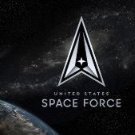Members Can Post Anonymously On This Site
DAF HEAT conference highlights ‘Pioneers of Change’
-
Similar Topics
-
By Space Force
DAF guidance on Return to In-Person Work for the purpose of creating a more capable and lethal force.
View the full article
-
By Space Force
The Department of the Air Force provided guidance March 19 for military members and civilian employees who are presently on TDY, traveling on PCS orders, or scheduled to begin such travel for A1-sponsored training.
View the full article
-
By NASA
Depending on where you stand at the lunar South Pole, you may experience temperatures of 130°F (54°C) during sunlit periods, or as low as -334°F (-203°C) in a permanently shadowed region. Keeping crews comfortable and tools and vehicles operational in such extreme temperatures is a key challenge for engineers at Johnson Space Center working on elements of NASA’s Artemis campaign.
Abigail Howard is part of that innovative team. Since joining Johnson in 2019, she has conducted thermal analysis for projects including the lunar terrain vehicle (LTV), pressurized rover, VIPER (Volatiles Investigating Polar Exploration Rover), and Gateway – humanity’s first lunar space station. Her work explores how different materials and components respond to different temperatures and how to manage heat transfer in products and structures.
She currently serves as the passive thermal system manager for the Extravehicular Activity and Human Surface Mobility Program, leading a small team of thermal analysts. Together, they provide expertise on passive thermal design, hardware, modeling, and testing to vendors and international partners that are developing rovers and tools for human exploration of the lunar surface.
Abigail Howard posing in front of a mockup of VIPER (Volatiles Investigating Polar Exploration Rover), which she worked on as a thermal analyst for three years. Image courtesy of Abigail Howard Howard said her sudden shift from thermal analysis engineer to thermal system manager involved a steep learning curve. “Every day was like drinking through a firehose. I had to learn very quickly about systems engineering tasks, project phases, and leadership, while also learning about many new thermal approaches and designs so that I could provide good insight to project leadership and program vendors and partners,” she said. “Having a good group of senior engineers and friends to lean on and building up my team helped me get through it, but the single most important thing was not giving up. It gets easier and persistence pays off!”
Abigail Howard (left) and Brittany Spivey (right) after presenting their poster at the 2022 International Symposium for Materials in the Space Environment in Leiden, the Netherlands. Image courtesy of Abigail Howard Howard feels fortunate to have worked on many interesting projects at NASA and presented her work at several conferences. Top achievements include watching her first NASA project launch successfully on Artemis I and supporting the LTV Source Evaluation Board as the thermal representative. “Something I’m really proud of is obtaining funding for and managing a test that looked at thermal performance of dust mitigation for spacecraft radiators,” she added.
Abigail Howard removes lunar dust simulant from a tray holding radiator test coupons during a test to evaluate thermal performance of radiators with integrated Electrodynamic Dust Shield for dust mitigation. Image courtesy of Abigail Howard She believes interesting and challenging work is important but says the biggest determinant to professional success and satisfaction is your team and your team lead. “Having a really great team and team lead on Gateway thermal taught me the kind of leader and teammate I want to be,” she said.
Howard encourages fellow members of the Artemis Generation to not let imposter syndrome get in their way. “Focus on the evidence of your abilities and remember that no one is in this alone,” she said. “It’s okay to ask for help.”
View the full article
-
Check out these Videos



Recommended Posts
Join the conversation
You can post now and register later. If you have an account, sign in now to post with your account.
Note: Your post will require moderator approval before it will be visible.